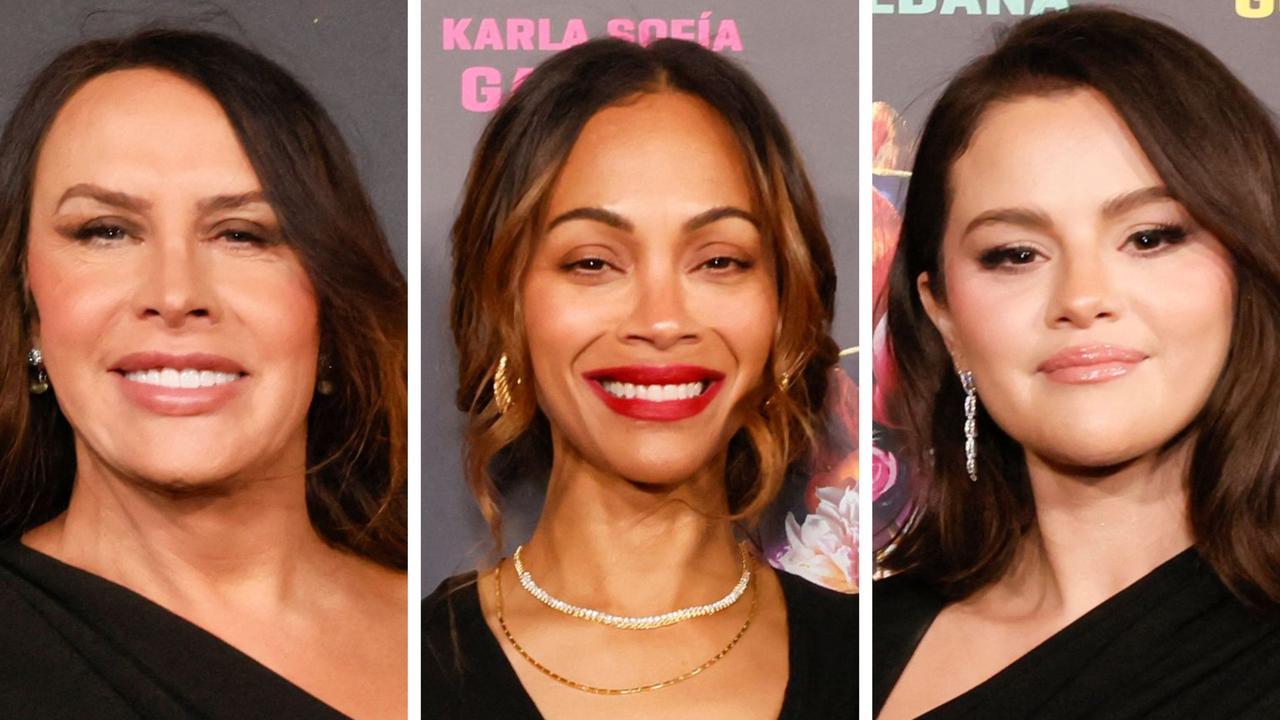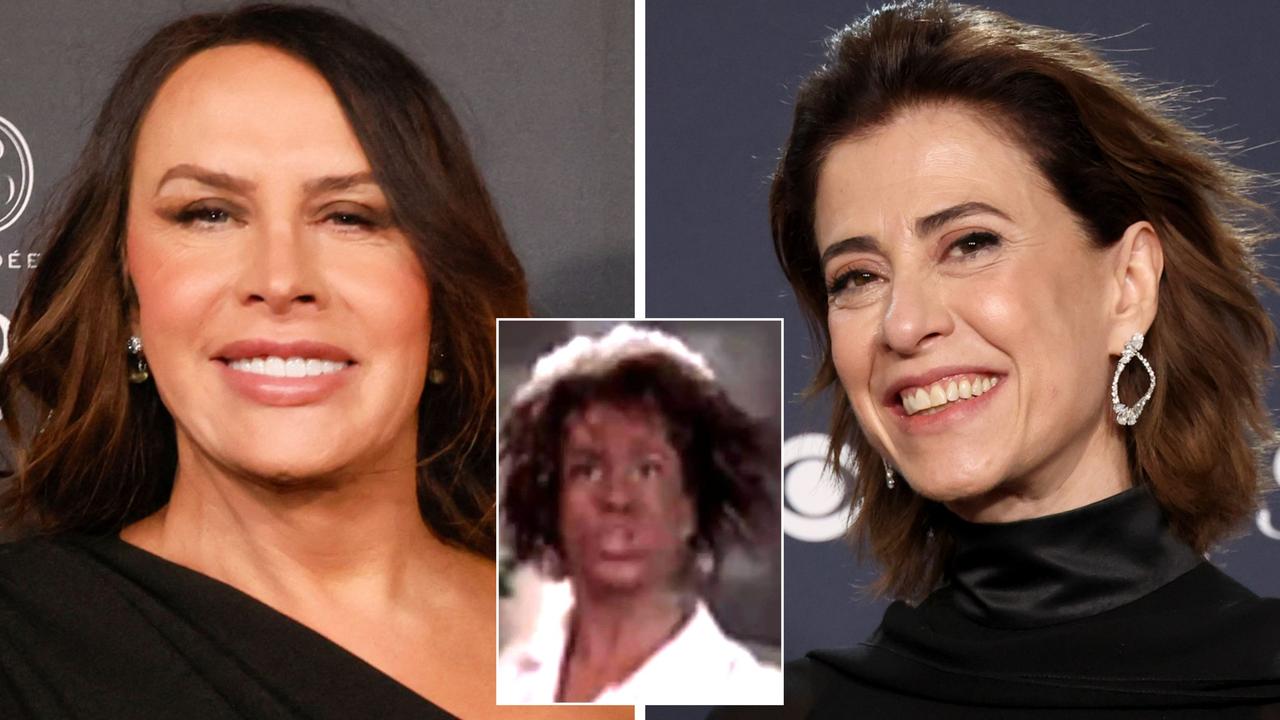Academy Awards: Actors who won Oscars for the wrong movie
What do DiCaprio, Newman, Spacek, Hoffman, Crowe and Dreyfuss have in common and why does the Academy take so long to reward many acting greats?
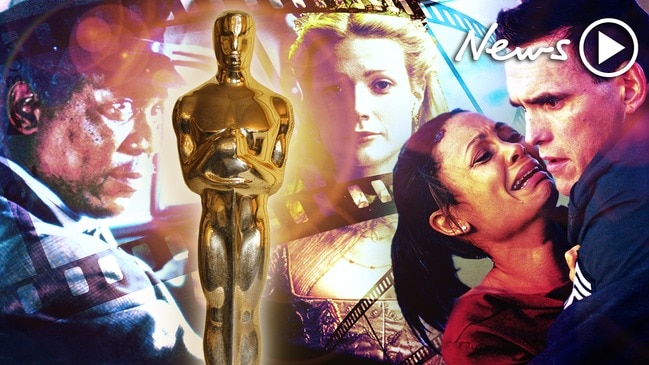
Oscars
Don't miss out on the headlines from Oscars. Followed categories will be added to My News.
Few people would doubt that the likes of Leonardo DiCaprio, Paul Newman, Sissy Spacek, Dustin Hoffman, Richard Dreyfuss and Russell Crowe were all worthy winners of an Academy Award for their acting talents.
Newman was riveting in The Verdict, Cool Hand Luke and The Hustler. Crowe surprised many with his depth in A Beautiful Mind and The Insider. Hoffman transformed himself in Midnight Cowboy and Little Big Man, while DiCaprio announced himself as a teenage sensation in What’s Eating Gilbert Grape and years later carried The Wolf of Wall Street. Spacek was spellbinding in Carrie, the film adaptation of the early Stephen King classic. Dreyfuss stole the movie off the shark in Jaws to celebrate his arrival as a major talent.
And therein lies one of the problems the Academy Awards just can’t seem to address. Those examples alone show six outstanding actors who were overlooked for their best performances, only to take home the award for lesser work.
Three years after turning in the performance of his remarkable career, playing a fragile, broken lawyer seeking redemption in The Verdict, Newman won for a veritable walk-through reprising the “Hustler” role of Fast Eddie Felson in The Color of Money. Nothing wrong with the performance but it was child’s play for someone of Newman’s scope.
Hoffman won for Kramer vs Kramer and Rain Man in roles that barely stretched him. The first was standard melodrama, the second role required the actor to lock in on the unchanged mannerisms of an autistic savant and press repeat. To make matters worse, the Rain Man Oscar came at the expense of Gene Hackman’s performance for the ages as a multi-layered FBI agent who simultaneously empathised with and despised the racist southerners he was investigating in Mississippi Burning.
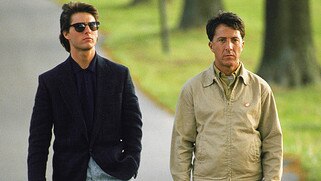
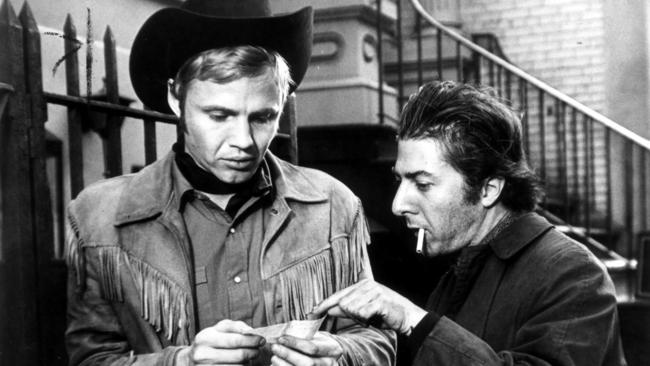
Spacek was overlooked for her early work in Badlands before her breakout performance in Carrie that has become part of popular culture and ignored once again for In The Bedroom. True to the proven formula, of course, she took home the award for playing real-life country music legend Loretta Lynn in Coal Miner’s Daughter and she got extra points for exhibiting her vocal talents.
DiCaprio was the subject of a massive campaign in 2015 to be rewarded for 20 years of stellar work, so he was never going to miss out when he turned in another strong performance in The Revenant. But he’s done better.
Crowe’s win borders on the farcical. One of our greatest exports, whose rare acting ability is often overlooked because of his personal baggage, won for playing a gladiator. The actor who has captured the essence of a neo-Nazi sociopath, multifaceted gay caregiver, paranoid schizophrenic mathematician, intense whistleblower and corrupt cop wins it for playing a Hollywood version of a gladiator. Enough said.
Dreyfuss curiously didn’t even get a Best Supporting Actor nomination for Jaws – he was nominated in the best actor category for the British Academy Awards. He’s turned in work of huge range from Mr Holland’s Opus to comedies Tin Men and Let It Ride. In 1977, he starred in The Goodbye Girl as well as what may have been the performance of his career as a tortured everyman trying to make sense of the implausible in Close Encounters of the Third Kind. So the remarkably diverse list includes Jaws, Close Encounters, Tin Men and Mr Holland’s Opus but Dreyfuss wins for playing one of his more standard characters in The Goodbye Girl.
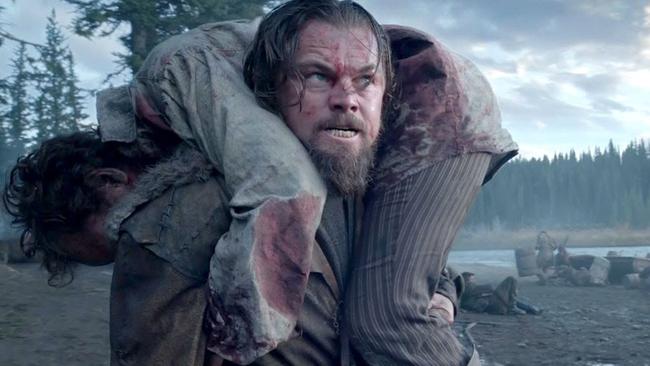
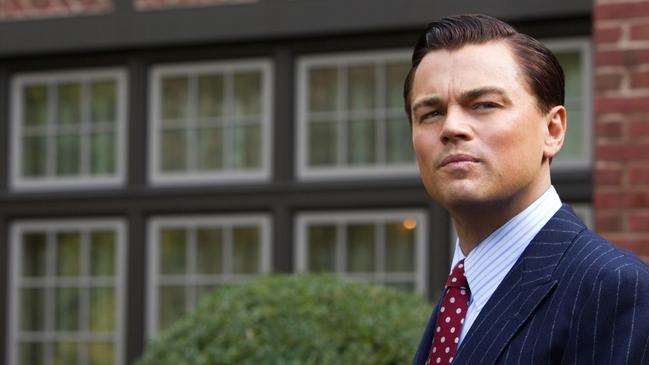
It may seem sacrilegious to denounce Ben Kingsley’s Oscar for playing Mahatma Gandhi but let’s get serious. Richard Attenborough’s historically-selective Gandhi was a clunky, quickly-dated melodrama and Kingsley won it for playing a lookalike who just happened to be one of the most beloved people in history. Meanwhile, he missed out for stronger work in Searching for Bobby Fisher and House of Sand and Fog and he couldn’t even win the Best Supporting Actor prize for his mesmerising take as psychopath Don Logan in Sexy Beast.
This series of curious decisions confirms something we’ve known for years. Winning an Academy Award in many categories comes down to timing and momentum. In the cases of Newman and DiCaprio, in particular, they were seen as well overdue for acting’s greatest honour. A wrong, it was generally agreed, had to be righted.
The same was almost certainly the case for Henry Fonda. At the very end of his celebrated career, Fonda garnered an emotion-charged Best Actor award for On Golden Pond. Widely regarded as one of America’s all-time great actors, he had never won cinema’s most coveted prize for acting. Not for The Grapes of Wrath, Mister Roberts or 12 Angry Men and time was running out. Fonda picked up his long-overdue Oscar in March 1982 and succumbed to heart disease just over four months later.
Ingrid Bergman won two Best Actress Academy Awards – for Gaslight in 1944 and Anastasia in 1956 – and was nominated a further four times but was somehow overlooked even for a nomination for her career-defining work in the 1942 classic Casablanca. It’s a familiar pattern. An actor is overlooked for brilliant early work, only to have the Academy realise they missed identifying a rare talent and choosing to compensate them later.
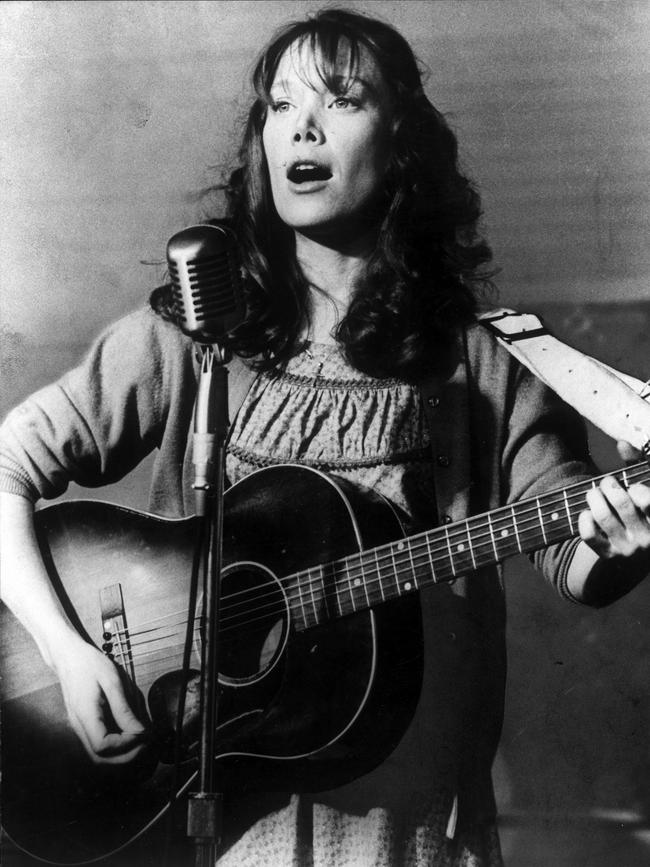
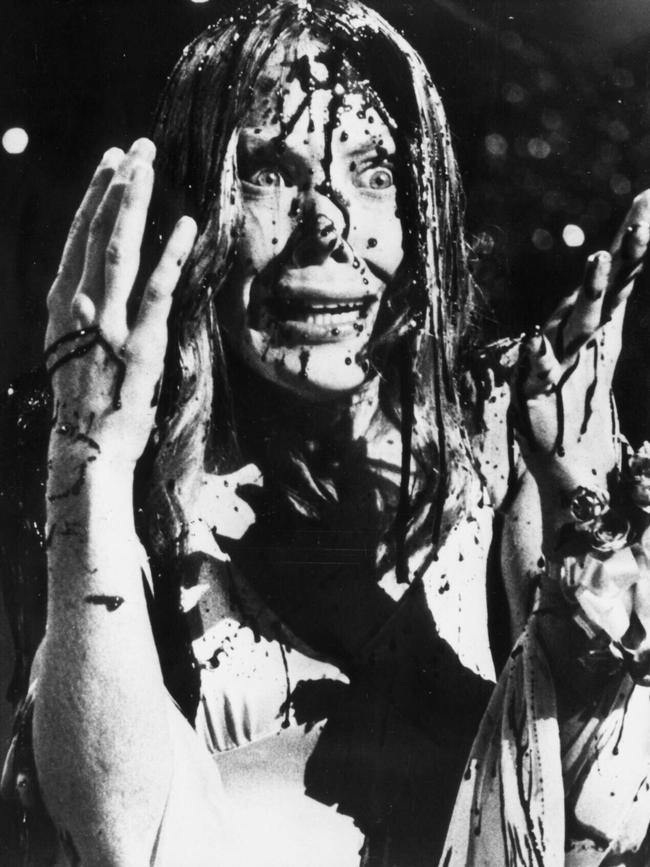
Unfortunately, there are too many cases where the performer never recouped the reward they should have received for their breakout work. The legendary Judy Garland didn’t even pick up a nomination for The Wizard of Oz in 1939 and had to wait another 15 years to receive her only Best Actress nomination for A Star Is Born. While some would argue her performance as Dorothy was at times stilted, it was a typical of the time as actors came to terms with the greater subtlety needed for the screen, with James Cagney and Spencer Tracy among the only notable pre-war actors who could manage the natural style that came into vogue years later. As it is, Garland anchored one of cinema’s greatest-ever movies and delivered or contributed in song and dance to 12 musical numbers. But she was 16 and those who recognised her talents obviously thought there was plenty of time for her to win an Oscar. It never came.
Haley Joel Osment was nominated for Best Supporting Actor for what is surely the best performance ever delivered by a child actor in The Sixth Sense. The award went to Michael Caine (Cider House Rules), who effectively apologised for winning – declaring in his acceptance speech, after seeing the nine-year-old’s performance, “well that’s me out of it”. The moment may have passed for Osment, now 32, who has never been in a film approaching that standard again.
Adding to the absurdity, arguably the best male and female actors of their generation are yet to win an Academy Award, either in a lead or support role.
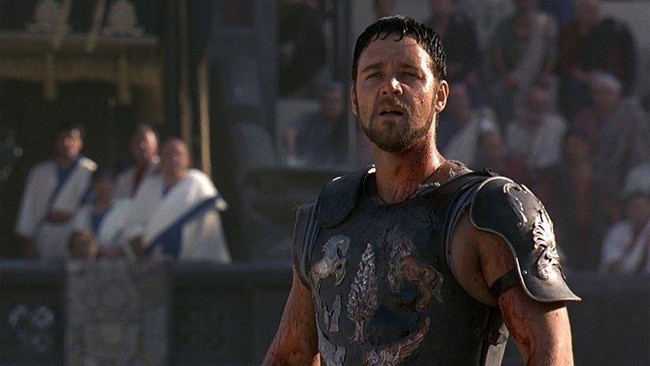
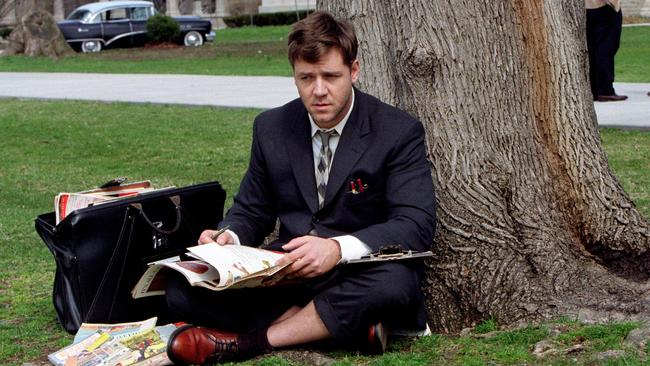
Like his contemporary Leonardo DiCaprio, the hugely-talented Ryan Gosling has been overlooked for all of his early work. The belief that getting a nomination is enough, or that there’s plenty of time left in a career, cost Gosling for his watershed performance of a drug-addicted teacher in Half Nelson in 2006. His work was the standout of the year but he was a glamour actor still basking in the box office success of The Notebook, a young leading man much in the mould of Paul Newman and Robert Redford, and his nuance was lost on voters who opted for Forest Whitaker’s larger-than-life imitation of Ugandan dictator Idi Amin in The Last King of Scotland.
Nominated a total of 10 times, Newman had to wait until he was 61 to finally win the prize; Redford, who claimed the Best Director’s award for Ordinary People in 1981, never has and never will win for his acting. After greatly varied standout work in Half Nelson, Lars and the Real Girl, Drive, Place Beyond the Pines and La La Land, it seems Gosling’s best hope is that someone will determine it’s “his time” to win the coveted award.
The same can be said for Amy Adams. The remarkably versatile 46-year-old is way past being a promising young star capable of winning multiple Oscars in her youth. She has been nominated for an Oscar six times – once for Best Actress in American Hustle in 2014 and supporting nominations for her breakout performance in Junebug (2006) and then for Doubt (2009), The Fighter (2011), The Master (2013) and Vice (2019). Her list of wins is imposing, taking home Golden Globe and Screen Actors Guild Best Actress awards for American Hustle, a second Globe for Big Eyes in 2015, Critics Choice Awards for Junebug, The Fighter and American Hustle and independent awards including the Sundance Special Jury Prize for Acting for Junebug. All of this is well-deserved recognition but not one Oscar for 20 years of greatly varied individual performances.
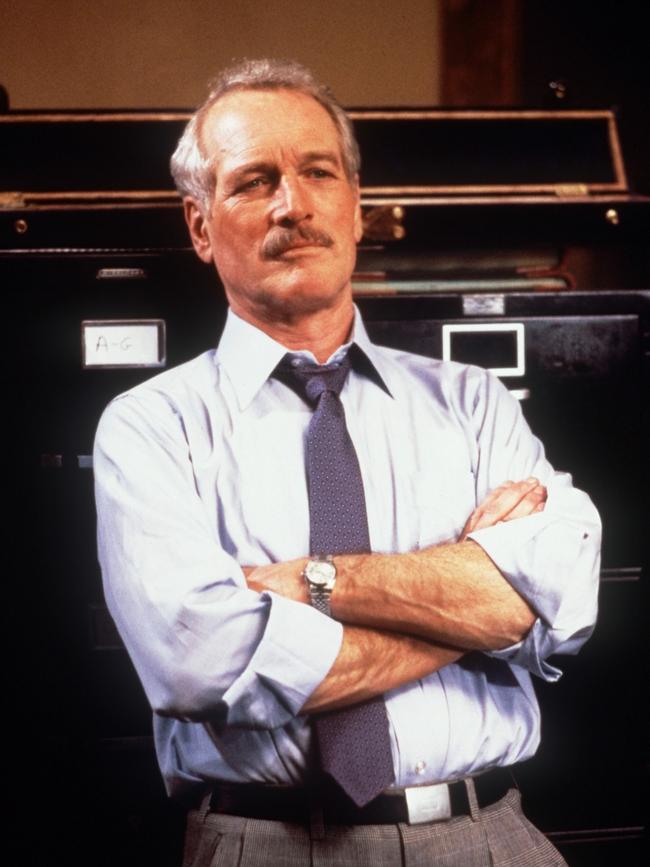
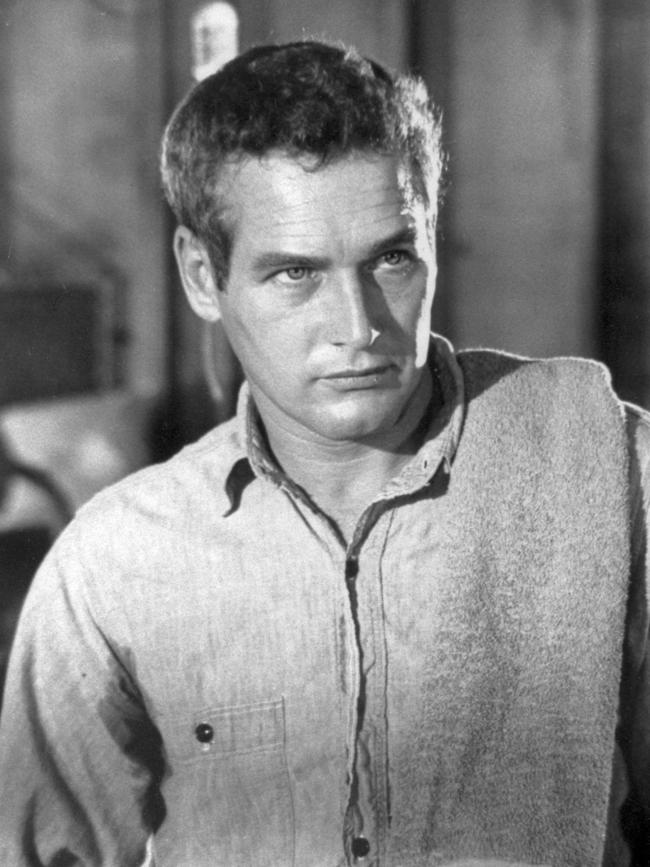
Even when an actor is finally rewarded with a worthy Oscar, it often comes years after they should have taken one home. Al Pacino missed out for The Godfather, Dog Day Afternoon, Scarface, Serpico, Insomnia, And Justice For All, Sea of Love and the list just goes on and on. Some of those standout performances were 20 years before he took home the Best Actor statuette for Scent of a Woman in 1992 and, well, one of the greatest actors the world has seen was well overdue.
This year’s Academy Awards appear to have only a couple of opportunities for “correction” honours, most notably the eight-time nominated non-winner Glenn Close – a multiple winner of Golden Globe, Screen Actors Guild and Critics’ Choice awards. Now in her 70s and rated by Vanity Fair as “one of the greatest actresses of our time”, Close was strongly favoured to finally win the Best Actress award for her performance in The Wife in 2019 but lost out to Olivia Coleman playing no less a real life character than Queen Anne. Close has also been nominated for the lead award for her work in Albert Nobbs, Dangerous Liaisons and Fatal Attraction, as well as supporting turns in The Natural, The Big Chill and The World According to Garp. This year, she is up for a support gong playing a matriarch of a struggling southern family, dealing with a drug-addicted daughter (another snub for Amy Adams) while effectively raising her teenage grandson.
The only other possible beneficiary of Oscar reparation is highly-respected Carey Mulligan, nominated for just the second time for her role in Promising Young Woman. Brilliant as a woman seeking redemption for a historic rape, Mulligan has the added advantage of carrying a topical, socially important film, which always gains points with the Academy members. She was ignored totally for her work in Inside Llewyn Davis, Shame, Drive, Suffragette and Never Let Me Go and it was widely regarded that she was well overdue for just her second nomination 12 years after her first. Time will tell whether two performers a couple of generations apart will win overdue awards.
NEVER EVEN CONSIDERED
Academy Awards history is littered with irregularities that often start well before the big night. At least the perennially-overlooked Richard Burton and finally recognised Paul Newman got a lot of nominations throughout their glittering careers. Not so for the following actors, who have never been recognised with even a nomination for either a standout performance or for their body of work which the Academy likes to reward – in the case of John Wayne, it garnered him an unlikely statuette for True Grit in 1969.
Donald Sutherland
The list should start and end here. How the Canadian great didn’t even get a nomination for his sublime, introspective performance as a grieving father trying to save his family in Ordinary People makes a mockery of the award. Throw in M*A*S*H, Without Limits, Eye of the Needle, Invasion of the Body Snatchers and Klute and it starts to resemble a personal grudge.
Marilyn Monroe
Or perhaps it should end here. The star of Gentlemen Prefer Blondes, The Seven Year Itch, The Misfits and How To Marry A Millionaire was a winner of major French and Italian film awards, nominated for a BAFTA and took home the Golden Globe Best Actress Award for Some Like It Hot. But she never even made the Oscar short-list for her lead roles in four of the highest-grossing and most critically-acclaimed comedies of the 1950s.
Jim Carrey
He won the Best Actor in a Musical or Comedy Golden Globe for The Truman Show and then the comic giant made the mistake of “accidentally” thanking members of the Academy for the award in what everyone else recognised was an acceptance speech joke. They’d teach him for being so presumptuous.
Bruce Willis
Pigeonholed as an action star, members of the Academy apparently were too busy thinking about Die Hard to realise that his work in Pulp Fiction, Unbreakable and a standout performance in The Sixth Sense was pure craft.
Richard Gere
If he wasn’t going to get a nomination for smash hits An Officer and a Gentleman and Chicago, perhaps the Academy might have taken note of his career-best work in the 2002 supernatural thriller The Mothman Prophecies.
Mia Farrow
Golden Globe nominated for Broadway Danny Rose, The Purple Rose of Cairo and John and Mary and won the National Board of Review Award for Alice. Somehow though, she missed out on even an honourable mention for her critically-acclaimed performance in Rosemary’s Baby, for which she received several international awards and a Globe nomination.
Cameron Diaz
Apparently the blockbuster comedy There’s Something About Mary was too mainstream for a nomination. But transforming herself for the much darker Very Bad Things and the critically-acclaimed Being John Malkovich didn’t help either.
Martin Sheen
He turned in a brilliant understated take on the pivotal character that holds Apocalypse Now together. Say no more.
Hugh Grant
Well he’s a comic actor so he’s damned as far as the Academy is concerned. He carried the British comedy classics Four Weddings and a Funeral and Notting Hill, which would have been little more than basic farce with any other actor playing the lead roles.
Colin Farrell
He won the Best Actor in a Musical or Comedy Golden Globe for Martin McDonagh’s masterwork In Bruges but couldn’t even get a mention come Oscar time. Perhaps the Academy was distracted by the performance of the year supporting work of fellow Irishman Brendan Gleeson in the same film? Oh wait, he wasn’t nominated either.

Originally published as Academy Awards: Actors who won Oscars for the wrong movie

